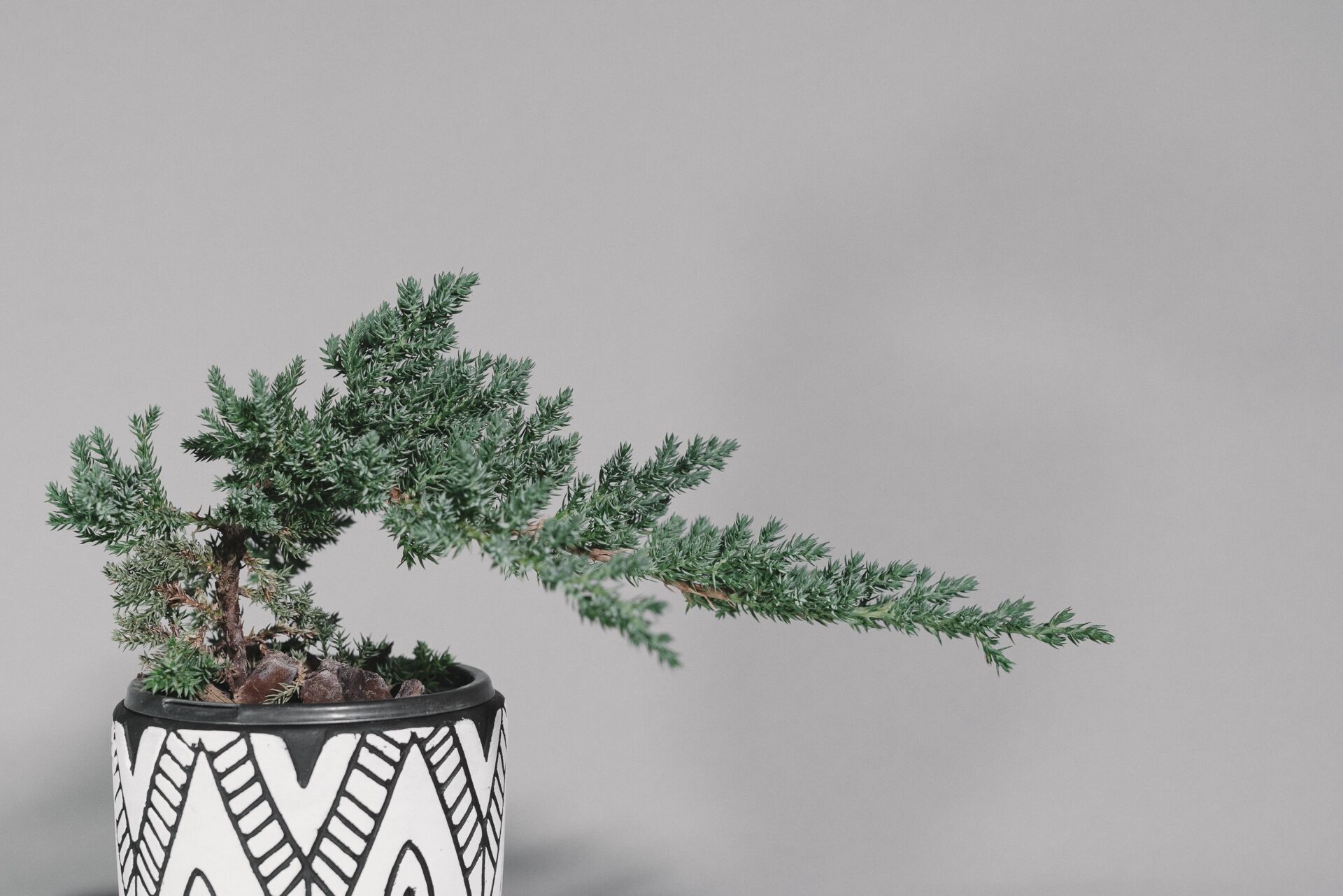They make perfect beginner bonsai trees for inexperienced gardeners because they are forgiving, easily shaped, and well-suited to bonsai growing techniques.
Light
Juniper bonsai require bright, direct sunlight, at least six to eight hours of full sunlight daily. For this reason, most species of juniper bonsai are best-suited to being grown outdoors year-round.
Soil
Juniper trees do well in a soil mix that is sixty percent aggregate and forty percent organic matter. Make your own using pine bark, lava rock, and a potting mix which holds water.
Water
As with most bonsai, juniper bonsai require regular watering to keep the soil consistently moist. However, they cannot tolerate being waterlogged. As a general rule, allow the soil to dry slightly between watering’s (but avoid letting it dry out completely), then water deeply. Additionally, ensuring that the bonsai has adequate drainage is imperative to prevent the soil from becoming waterlogged.
Fertilizer
Use slow-release fertilizer once a month during the growing season, or a liquid fertilizer every week when watering. If vigorous growth is desired, a nitrogen-rich fertilizer is recommended—but only in the spring months. To avoid shocking the roots, don’t fertilize a juniper bonsai for at least a month after it has been repotted. Do not fertilize during the winter.
Growth
Always leave some foliage on the branches to ensure ongoing growth. It is best to prune juniper bonsai in the early spring and summer during their active growing period.
Pet Friendly? Yes.


